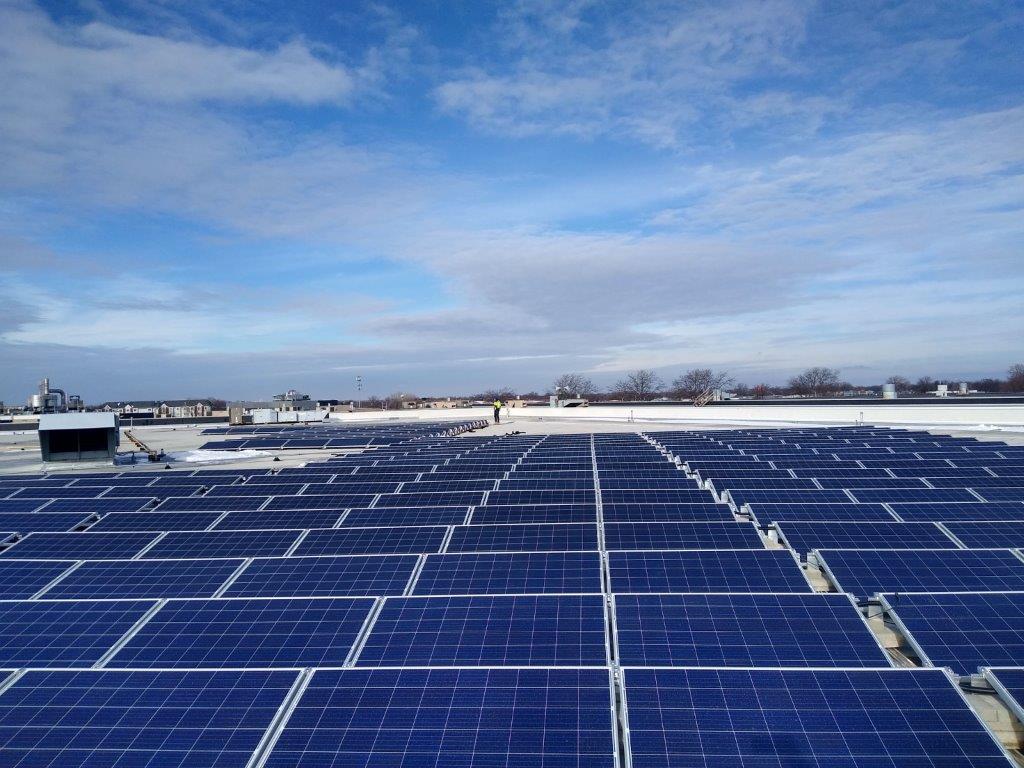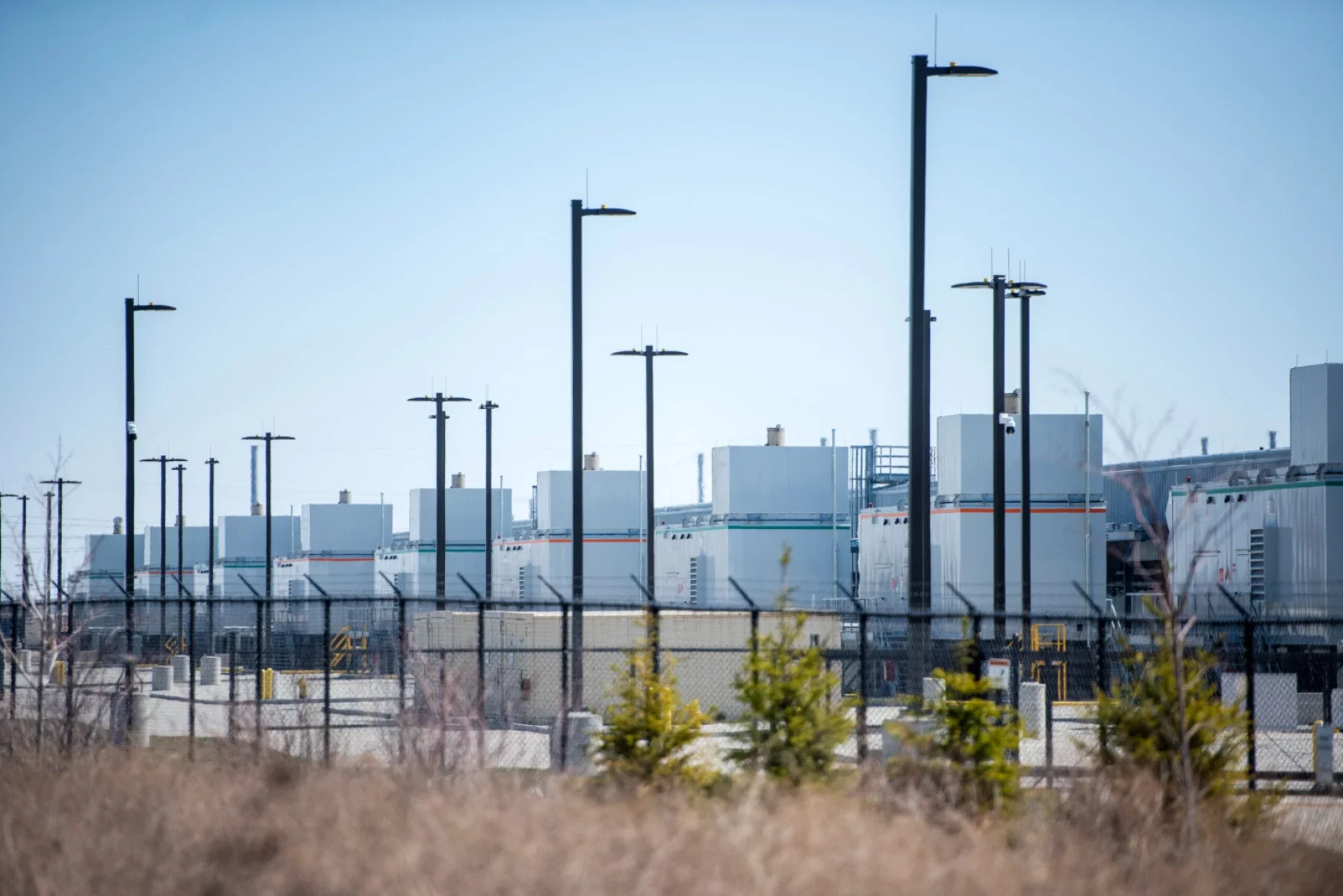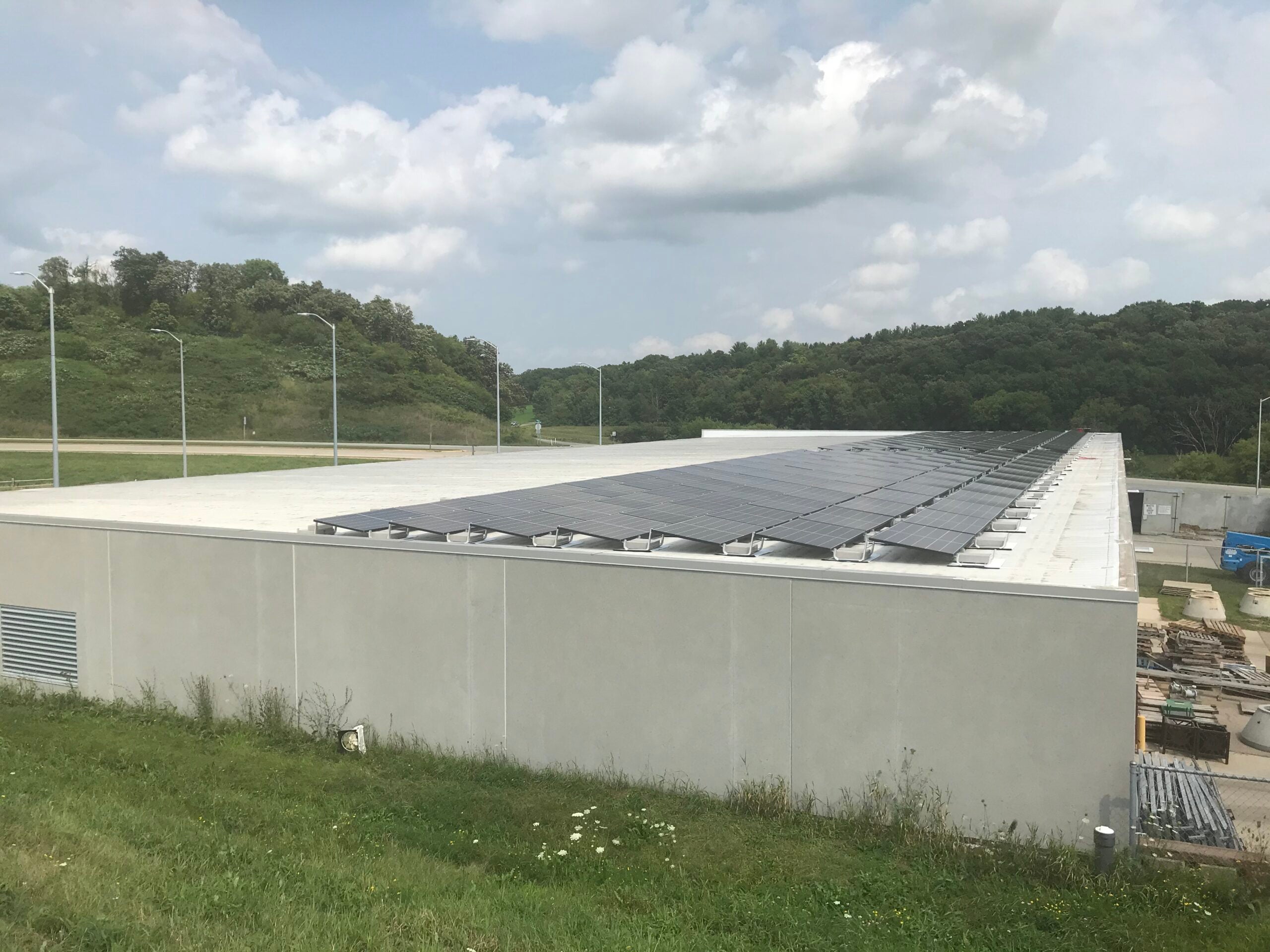Wisconsin’s businesses have increased efforts to become more sustainable in recent years, especially since the beginning of the COVID-19 pandemic.
The pandemic exacerbated the need for sustainability for many companies and made them more aware of environmental, social and global health risks, according to Jessy Servi Ortiz, managing director of the Wisconsin Sustainable Business Council.
She said supply chain disruptions have also played a role in boosting awareness for how sustainability can improve outcomes for companies.
News with a little more humanity
WPR’s “Wisconsin Today” newsletter keeps you connected to the state you love without feeling overwhelmed. No paywall. No agenda. No corporate filter.
“All of that sort of relates to sustainability from the standpoint of really looking at ways that they can improve their business,” she said. “We’ve also seen a huge uptick in investor interest in sustainability.”
That increased enthusiasm for sustainability is reflected in the Wisconsin Sustainable Business Council’s membership, which increased from 80 companies last year to 150 this year, Servi Ortiz noted.
She said cost savings is one of the main reasons for the increased focus on sustainability among companies, but others include brand reputation and employee recruitment.
“Sustainability is about continuous improvement, and about becoming more efficient overall, and that has bottom-line benefits to an organization,” Servi Ortiz said. “The younger generation wants to work for a company that’s doing right by society and the environment, and is walking their talk.”
Some of the initiatives businesses are investing in include reducing waste, using new methods to produce products, rethinking water consumption as well as tracking and reducing greenhouse gas emissions.
“The benefits of sustainability at this juncture definitely outweigh the cons — there really are no cons,” Servi Ortiz said. “You only improve your company by organizing around sustainability.”
One company that’s focused on sustainability is the Fond du Lac-based Mercury Marine, which makes motors for boats.
While the company has tried to be environmentally-minded for years, sustainability manager Scott Louks said it made sustainability a core value in 2010. He said Mercury Marine has four pillars in its sustainability strategy: energy, environment, product and people.
“If we don’t get this right, then you really can’t continue in advance and be a leader without having your eyes on those kinds of important business, social (and) environmental values,” Louks said.
In terms of energy, Louks said the company has invested in renewable initiatives, including solar arrays on its Fond du Lac headquarters and other facilities around the globe.
Mercury Marine is also partnering with Alliant Energy for a large-scale solar project in eastern Fond du Lac County that will feature more than 12,000 solar panels on 32 acres, he said. The project aims to be completed by the end of 2023.
“It’s a working sheep farm, so sheep will be grazing in the fields where the solar array is located,” Louks said.
On the product side of things, he said Mercury Marine is developing an electric boat motor named, “Avator.”
“We really want to make sure that we’re in the electric arena,” Louks said. “People in general are doing that in the automotive space, and we’re going to be doing it in the marine space.”
Another company that emphasizes sustainability is Kohler Co., which makes plumbing products.
In 2008, the company pledged to have a net-zero environmental impact by 2035. It’s working to achieve that goal by more efficiently using energy and water, and by reducing carbon emissions and waste.
“We have a really large global footprint today, and we’ve always felt that we have the responsibility to be positive stewards to the planet,” said Ratish Namboothiry, sustainability director for Kohler Co.
The Racine-based SC Johnson & Son, Inc., which makes household cleaning supplies and other consumer chemicals, also emphasizes sustainability.
The company has increased the recyclable materials used in its packaging, created more refillable and reusable options for customers and worked to eliminate problematic packaging that can’t be recycled, according to a spokesperson for SC Johnson.
Since 2019, it’s worked to make sure its factories send no manufacturing waste to landfills. The spokesperson said 35 percent of the energy used at facilities comes from renewable sources and that the company hopes to reach 47 percent renewable energy by 2025. SC Johnson also reduced greenhouse gas emissions by 68 percent since 2000 and hopes to hit 90 percent by 2025.
“We have been working for decades to reduce our carbon footprint, practice greener chemistry, demonstrate ingredient transparency and reduce plastic waste,” the spokesperson said in a statement.
Servi Ortiz added that being environmentally-minded is critical for companies looking to the future.
“Businesses, traditionally, have really looked at short term gains,” she said. “But, really, we need to change that mindset and really be thinking long term, like thinking about having your business be here in 20 years, 40 years, 50 years, 100 years.”
Wisconsin Public Radio, © Copyright 2025, Board of Regents of the University of Wisconsin System and Wisconsin Educational Communications Board.







